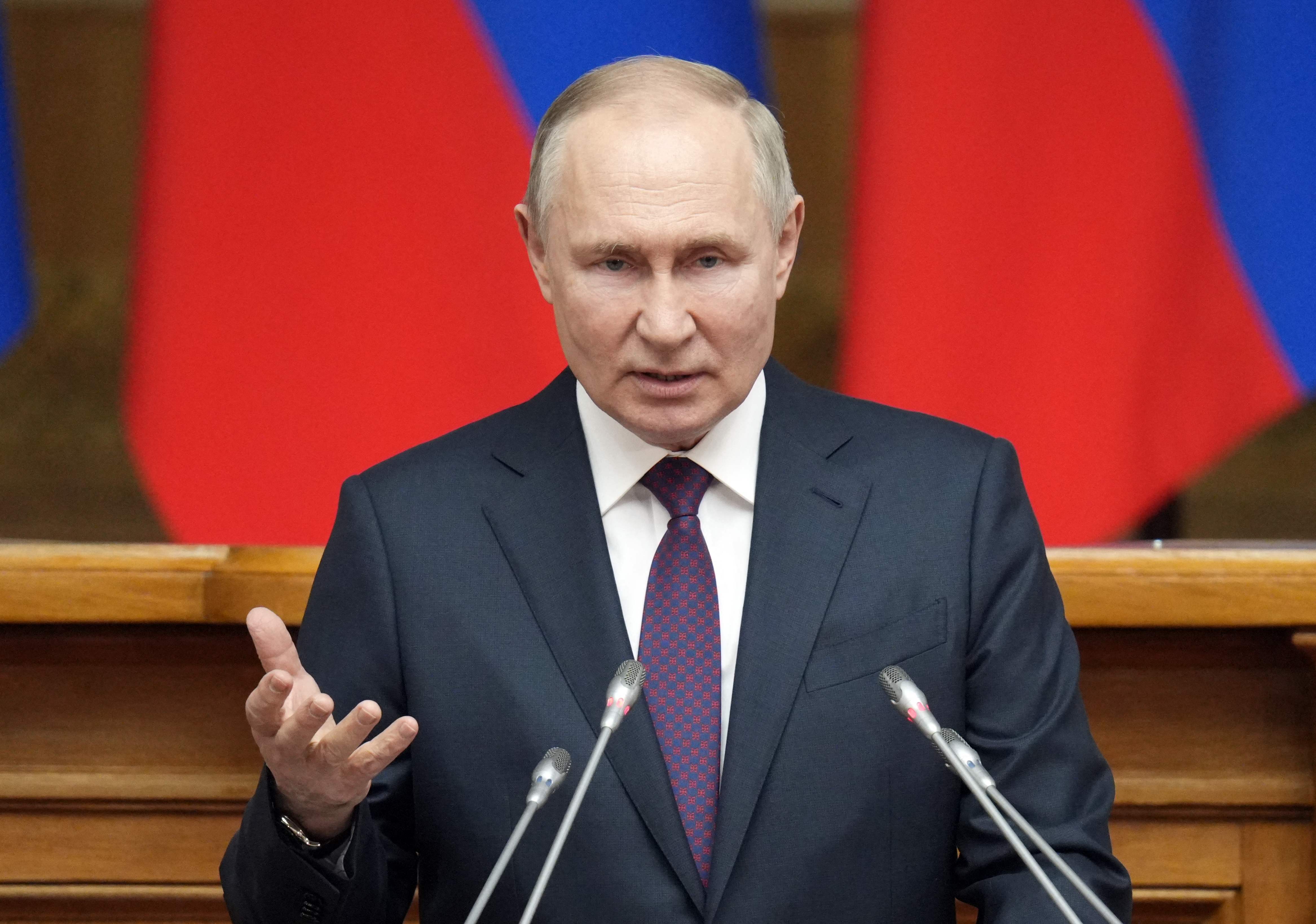Putin is unprepared for the blowback his assault on Ukraine will bring Russia
Russia is already paying a huge price that will only increase, writes Borzou Daragahi


The small drones managed to bypass security surrounding the Kremlin, Russia’s most sacred political and religious site, before they were blasted out of the sky during the early morning hours of 3 May.
The Kremlin angrily described the drones as a Ukrainian and Western-backed assassination attempt against President Vladimir Putin. It almost definitely was not. It was yet another sign that the fallout from Putin’s disastrous war of imperial conquest was moving closer and closer to the heart of Russian power.
No one should take anything the Russian government says at face value because, well, it’s Russia. The drones did not appear particularly large or sophisticated. Putin, who has over the years slowly turned into a Bond villain caricature of himself, was probably at one of his compounds, bunkers or palaces and nowhere near the fortress-like presidential residence that is the formal seat of Russian power and a major tourist draw.
On the other hand, many astute Russia watchers say the drones were unlikely to have been a false flag operation staged by Putin’s cronies. Such a serious breach of one of the most heavily guarded and famous government compounds in the world is humiliating.
“It casts such a bad shadow over the Kremlin,” Elsa Vidal, Russia editor-in-chief of Radio France International said on Friday night on a France 24 segment in which I participated. “It shows that Russia’s power is not able to protect the most sacred land in the country.”
Regardless of who was behind the purported attack, the chaos in the very centre of the Kremlin punctures the fantasy that Russia’s leadership elite can live their lives in smart quarters of Moscow and Saint Petersburg without feeling the damaging effects of the war.
Wednesday’s provocation prompted a furious reaction from the Kremlin, and a potential uptick in attacks on civilian targets in Ukraine. But it was only one of the most high profile of a series of ruptures and rumblings showing the war’s escalating impact on Russia.
Vidal suggested that the drone operation was a stunt by Russian dissidents and pro-Ukrainian activists inside the country, meant to show how easily they could penetrate the supposedly well-guarded realm of Putin and his cronies and “make them look ridiculous” less than a week before the pomp and parades of 9 May Victory Day marking the end of the Second World War.
Just before the drones episode, consecutive explosions on consecutive days derailed two freight trains in western Russia, likely acts of sabotage carried out by dissident networks or Ukrainian operatives. And on 29 April, Ukrainian forces struck an oil-depot in the Russian-occupied Crimea port city of Sevastopol, sending a cloud of black smoke into the sky above the home of Russia’s Black Sea fleet. Then on Saturday, prominent Russian ultra-nationalist Zakhar Prilepin was injured, and another person killed in an explosion targeting his car in the Novgorod region east of Moscow.
They were among a long series of escalating attacks on Russia and Russian-controlled Ukrainian land heralding an impending spring offensive. They send a message that the theatre of the coming battles will not be limited to Ukraine’s geography, or even the Russian border region used as a staging ground for the war.
Within Putin’s inner circle, there are also disturbing signs of entropy. The Kremlin has been a scene of insider factional squabbling for centuries. But the latest palace intrigues resemble the power plays between rival generals in Khartoum more than the crafty political gamesmanship of Soviet or Tsarist Moscow.
In a video posted to social media channels that bypassed Russia’s tightly censored broadcast outlets, Yevgeny Prigozhin, leader of Russia’s Wagner mercenary force, stood last week amid the bloodied, mangled bodies of his own fighters in the Ukrainian city of Bakhmut. There, in words that shocked even long-time Russia experts, he profanely harangued by name other top military officials he accused of betraying the young Russian men fighting Putin’s war by withholding munitions and other military support.
Next came word that Russian forces would retreat from Bakhmut, which they have been fighting to hold onto for months – but not before lighting the city up with banned incendiary weapons in a vengeful act of cruelty and criminality.
It all points to chaos, desperation and well-warranted fear at the very top of Russia’s leadership as Ukraine readies an offensive that insiders and experts have hinted will include numerous surprises.
“Russia's already demoralised troops serving under a rigid, hierarchical chain of command weakened by power struggles, infighting, and leadership changes will be facing a highly motivated, adaptive, decentralised Ukrainian force,” says Jessica Berlin, a Ukraine war analyst.
Russia is already paying a huge price that will only increase. Whether through acts of terrorism and sabotage, political chaos and social unrest, wars of choice always spark blowback and resistance – even since the time of the Roman Empire.
Militarisation of society and the grim aesthetic of fear – barbed wire, sandbags, long security lines and blast walls – are the real legacy of the West’s wars of choice.
In the US, traumatised veterans shoot themselves or their loved ones dead. Community policing and beat cops have been supplanted by law enforcement swarming into homes in Louisville using the same counterinsurgency tactics as soldiers in Fallujah.
Scholars specialising in Russia have argued that one of the reasons why Putin invaded Ukraine was to emulate the supposed “great power” posturing of the US in its invasion of Iraq. But Putin should have read the fine print. Such wars ultimately weaken great powers.
Join our commenting forum
Join thought-provoking conversations, follow other Independent readers and see their replies
Comments
Bookmark popover
Removed from bookmarks